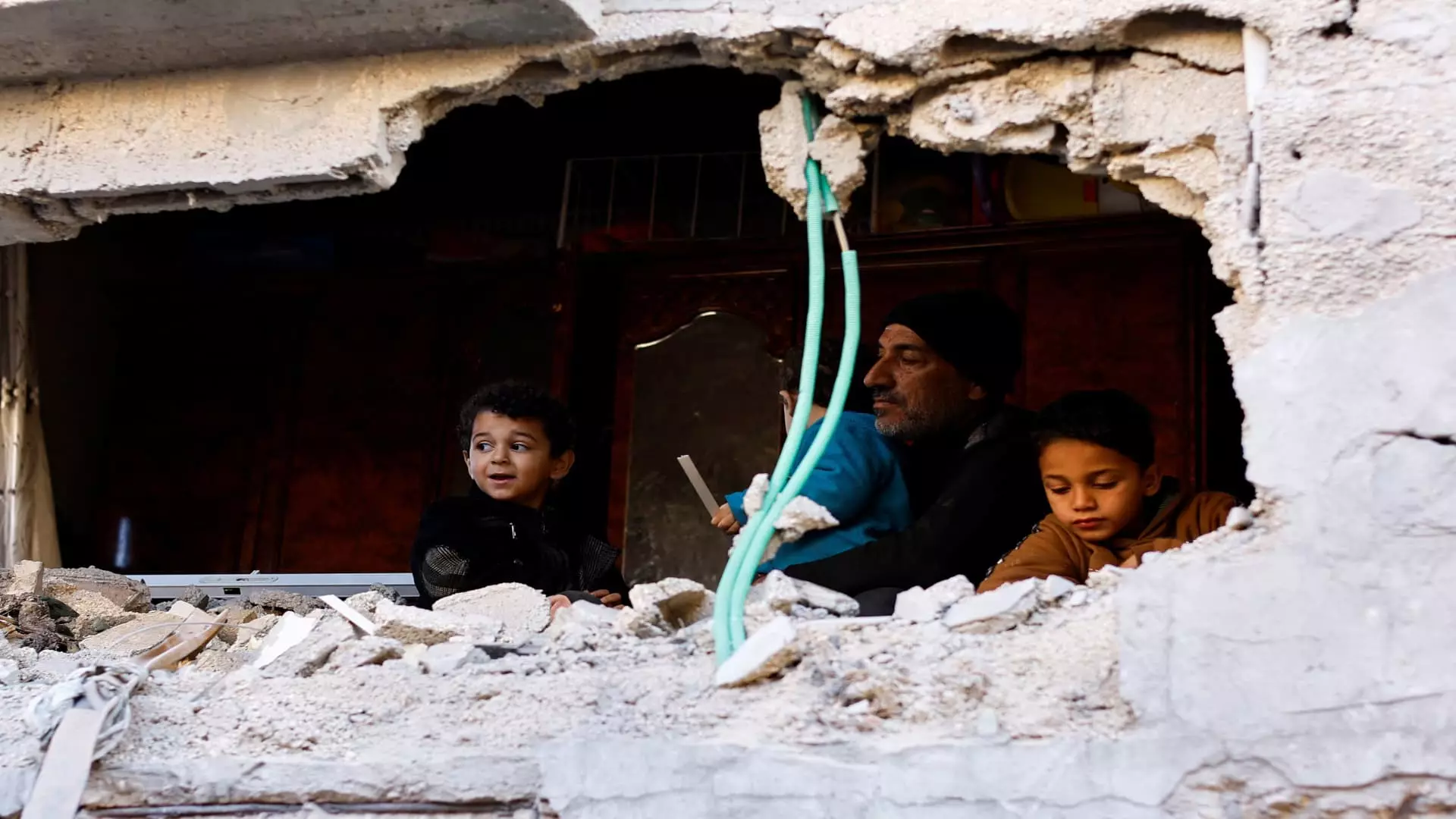Amidst the rubble and devastation in Gaza, the Abu Mustafa family finds themselves trapped against the high concrete and metal fence that separates Gaza from Egypt. The family, like over a million other Palestinians, fears being left with nowhere to flee in the midst of the ongoing military offensive. Displacement is particularly challenging for the Abu Mustafa family as they have two disabled daughters and lack transportation options. They, along with many others, have no choice but to remain in a small strip of land that has been reduced to ruins. Israeli Prime Minister Benjamin Netanyahu has initiated an evacuation plan for civilians in Rafah, who are currently camping in the streets, empty lots, and along the beach. However, aid agencies warn that any assault on the city would only exacerbate the already catastrophic humanitarian crisis in the war-torn region.
The war in Gaza began on October 7 when Hamas militants stormed the border fence with Israel, resulting in the deaths of 1,200 people, most of whom were civilians. The offensive also led to the capture of approximately 250 hostages. Four months later, Gaza lies in ruins. Israeli ground forces, aided by daily bombardments, have destroyed numerous houses, public buildings, and infrastructure through air raids, artillery fire, and controlled detonations. Palestinian health authorities report that over 28,000 people have lost their lives in the conflict, with women and children comprising 70% of the fatalities. Moreover, over 85% of Gazans have been left homeless. Shockingly, a U.N. survey reveals that nearly 1 in 10 children under the age of five is acutely malnourished. Efforts to establish a ceasefire and secure the release of hostages have thus far been unfruitful. Israel recently rejected a Hamas proposal, citing concerns about the presence of Hamas brigades in Rafah. High-level talks involving officials from Qatar, the United States, Israel, and Palestine are scheduled for Tuesday in hopes of finding a resolution.
While talks are ongoing, Israeli air raids have intensified in recent days, targeting Rafah. Hamas reported that these airstrikes have resulted in the deaths of two hostages and injured eight others. The group warns that an Israeli assault on Rafah would jeopardize the negotiations for the release of remaining hostages. Israeli Prime Minister Netanyahu has confirmed plans to assault Rafah but assures the international community that a detailed plan is being prepared to ensure the safety of civilians. However, France’s Foreign Ministry has expressed grave concern and warned that a large-scale Israeli offensive in Rafah would create a catastrophic humanitarian crisis of unprecedented proportions.
The Abu Mustafa family, living just beside the border fence lined with barbed wire, struggles to survive. They hang their laundry between tents and cook what little food they have managed to gather in empty tin cans over a fire in the sand. Fear of an imminent assault on Rafah dominates the conversations among the crammed city’s inhabitants. Mariam, a mother who fled her home in Gaza City with her three young children, shares the turmoil and uncertainty they are experiencing. Her children constantly ask her when Israel will invade Rafah, where they will go, and if they will die. Yet, she, like so many others, has no answers.
The humanitarian crisis in Gaza is reaching unprecedented levels. The Abu Mustafa family’s story is just one of many tragic narratives unfolding in this war-torn region. The ongoing Israeli offensive has left Gaza in ruins, with thousands of lives lost and countless families displaced. The urgent need for a ceasefire and comprehensive humanitarian aid cannot be overstated. The international community must unite to find a peaceful resolution that prioritizes the safety and well-being of the civilians caught in the crossfire. Otherwise, the plight of the Abu Mustafa family and countless others will continue to worsen, further deepening the tragedy in Gaza.


Leave a Reply